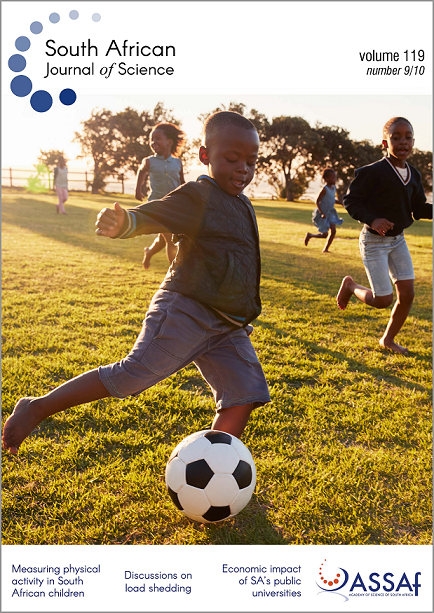Assessing the adoption of improved seeds as a coping strategy to climate variability under smallholder farming conditions in South Africa
DOI:
https://doi.org/10.17159/sajs.2023/15001Keywords:
climate-related risks, climate-resilient seeds, climate-smart agriculture, farmers’ seed systems, maize seed varietiesAbstract
This study was undertaken to examine the adoption rate, constraints and factors determining the uptake of improved seed varieties in smallholder farming conditions of South Africa, using a maize crop. Primary data were collected from 279 smallholder farmers in the Maluti-a-Phofung municipality of the Free State Province using a household questionnaire and were validated through focus group discussions with key local informants. Descriptive statistics, frequency analysis and a binary logistic model were used for data analysis. Results show that the majority of the farmers (>69%) were growing uncertified local seed varieties saved from their previous harvest or acquired from neighbouring farmers. The lack of awareness and knowledge of, inadequate information, unaffordability and unavailability of improved seeds, low income and landlessness were major constraints limiting the adoption rate. Age and income were the main variables that had a positive and significant effect on the adoption of improved seed varieties, whilst ownership of livestock had a significant and negative influence on their adoption. As a result, the promotion of improved seed varieties needs to be supported by conducive and effectual institutional policies that will improve the provision of extension services, capacity-building initiatives, subsidy programmes, financial resources and good agricultural lands, and reduce the transaction costs of improved seed varieties. The recommendations from this study can be used by the government and other developmental organisations to enhance the wider uptake and use of improved seed varieties in smallholder farming conditions not only in the study area but also in other regions with similar challenges.
Significance:
- A lack of awareness and knowledge of, inadequate information, unaffordability and unavailability of improved seeds, low income and landlessness are key constraints limiting adoption.
- We recommend the provision of knowledge and awareness-raising of improved seed varieties through enhanced extension services and capacity-building initiatives as key strategies to improve the adoption rate.
- The recommendations of this study can be used to enhance the wider uptake and use of improved seeds and assist smallholder farmers to cope effectively with climate variability and change.
Downloads
Published
Issue
Section
License

All articles are published under a Creative Commons Attribution 4.0 International Licence
Copyright is retained by the authors. Readers are welcome to reproduce, share and adapt the content without permission provided the source is attributed.
Disclaimer: The publisher and editors accept no responsibility for statements made by the authors
How to Cite
- Abstract 478
- PDF 812
- EPUB 369
- XML 146
- Supplementary material 173
Funding data
-
Horizon 2020 Framework Programme
Grant numbers 727201












.png)